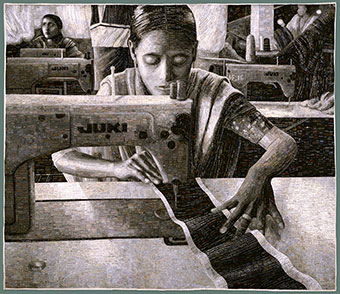This is taken from an excellent article about the social network Diaspora and its tragic end What Happened to the Facebook Killer? It’s Complicated. Aside from telling this story the article also has an excellent critique of the myth of success in silicon valley where survivor bias and the need to create “strong man” myths dominates to an incredible degree.
These creation myths not only prevent us from seeing the blatantly obvious truths but actually work to prevent us from understanding what success is and how it is achieved.
In Silicon Valley, where college dropouts go on to become billionaires and takeover the world, a deadly myth propagates. “As long as you’re over a certain threshold of intelligence, what matters most is determination,” evangelizes Paul Graham, founder of the legendary startup incubator Y-Combinator, which would later back Diaspora in a last gasp effort to keep the project alive. It’s a beautiful thought and fundamental to the American Dream. It’s a delusion that drives starry-eyed youngsters to quit school and head West, living off ramen and moving into hostel communities, “not so different from crowded apartments that cater to immigrants.” In Silicon Valley, they believe that if you do whatever it takes, eventually, you’ll get there too. There, everyone is on the cusp of greatness. And if you haven’t yet made it to the land of milk and honey, it’s only because you aren’t working hard enough. Or worse, you’ve given up.
Success, however, is never quite so straightforward, a layered concoction, equal parts good idea, perseverance and whole lot of serendipity. It’s for this reason that many of the industry’s biggest rock stars remain one hit wonders. Marc Andreessen has struggled to match the triumph of Netscape Navigator. Twitter co-founders Ev Williams and Biz Stone left their company a year ago to work on something called Obvious, but so far have only a single blog post to show for it. Then there’s Sean Parker of Napster fame. After wiggling his way into Facebook, his latest celebrity-endorsed venture, the Chatroulette clone AirTime, has yet to take off, if it ever does. Even with their credibility, confidence and cash, repeating past success eludes Silicon Valley’s finest.
Yet the myth propagates because survivor bias rules. Failure just isn’t part of the vocabulary; startup honchos prefer terms like “pivot” over more straight-forward words for a coming-to-terms. It’s not something winners acknowledge, nor is it something the media often reports. For every Mark Zuckerberg, there’s thousands of also-rans, who had parties no one ever attended, obsolete before we ever knew they existed.
Then there’s the issue of money. In the early stages of a tech startup, there are few measurable achievements and progress is abstract. At the height of Silicon Valley’s second great tech bubble, new players defined themselves not by what they’d done, but how much money they raised. While raising capital is fundamental, too much too soon can be a death sentence. All that cash hangs like an albatross around your neck, explains Ben Kaufman, who just raised $68 million for his company, Quirky.
“In the eye of the public, and specifically the tech community, funding is thought to mean much more than it actually does,” Kaufman writes. “The world views funding as a badge of honor. I view it as a scarlet letter.” This is the age of Kickstarter, where you can earn press and raise millions on the back of just an idea, undermining the tech scene’s supposed love affair with execution. It reinforces a false sense of success, Kaufman says, remembering the first time he raised his first $1 million at the age of nineteen. “My grandfather called me to congratulate me on building a successful company,” Kaufman recalls. “We still hadn’t done shit. We just got some dude to write a check.” In other words, when the money is flowing, it’s easy to feel like you’ve made it, before you’ve actually made it.



